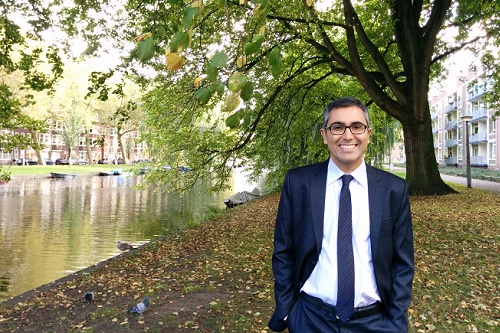ALL successful organisations take risks in order to survive and grow and now, more than ever, they need competent people to manage those risks.
Major regulatory reforms being introduced in the wake of the recent global recession have led to a spike in demand for specialists, particularly in the retail banking and insurance sectors. Step forward the financial risk manager.

What does a financial risk manager do?
Financial risk managers identify and analyse areas of potential risk threatening the assets, earning capacity or success of a business.
Sometimes known as risk analysts, risk technicians or risk surveyors, their job is to forecast changes and trends that will impact the business and put strategies in place to protect it.
They may work in sales, origination, trading, marketing, financial services or private banking and may specialise in areas such as credit or market risk.
A financial risk manager can expect a salary of around US$80,000 plus generous bonuses of as much as $25,000.
In the USA, overall incomes spread from $51,000 to $136,000 depending on performance and experience.
Booming demand
Last month, UK-based recruitment firm MERJE said demand for risk and compliance specialists was up 30 per cent on the same period last year.
Director Richard Abelson said the boom was partly fuelled by forthcoming changes to regulations such as Basel III (global banking reforms) and Solvency II (EU-wide insurance reforms).
“Despite demand, the pool of candidates in the financial services sector with analytical skills and regulatory exposure to fill these jobs is limited, making it increasingly difficult for employers to meet the escalating demand for talent,” he added.
What are employers looking for?
Financial risk managers often come from a mathematics or economics background and have strong analytical and project management skills.
They are excellent communicators who will broker compromise when possible but stand their ground when the risk is too great to compromise.
Candidates should have experience in model risk exposure and may be expected to have an understanding of regulations such as Dodd-Frank and Basel, and experience with risk and analytics software such as SAS, SAP, ARM and Endur.
What qualifications do I need?
While it is still possible to work your way up to a risk manager role from a bachelor degree, such as mathematics or economics followed by experience in the financial services industry, candidates with specialist advanced qualifications are increasingly sought for the top jobs.
A few universities now offer specialist MSc programmes in risk management or financial risk management tracks within an MSc in finance or an MBA.
Duisenberg School of Finance in the Dutch capital Amsterdam runs one of the oldest and still one of the few full-time risk management programmes in the world. Its MSc Finance, Risk Management track is designed to innovate risk management procedures, revise supervisory practices and improve the handling of systemic risk. Students learn about measure theory stochastic processes, pricing of the options, derivatives and hedging and the courses cover both credit risk management and market risk management.
Many financial institutions in the Netherlands have a stake in the school which helps with internships and placements, and students work on problems faced in real-time by multinational corporations.

Stern Business School at New York University is also renowned for its MSc in Risk Management for Executives. It is one of a number of top-tier universities around the world that have partnered with the Global Association of Risk Professionals (GARP) to advance risk management education and to prepare students for GARP’s globally-recognised FRM® (Financial Risk Manager) certification program for risk management professionals.
A GARP spokesman explained: “Both recruiters and banks are desirous for candidates with specific risk qualifications.
“For many financial institutions a practice-based qualification is essential.
The FRM® designation is by far the best known and most respected designation for financial risk, with all of the top 25 global banks having a significant presence of Certified FRMs. A practical based qualification, such as the FRM®, will enhance your career prospects. Additionally, enrolling in a Continuing Professional Development (CPD) program to maintain the professional acuity achieved during certification is highly regarded by prospective employers.
“Although there is no one specific formula to achieving employment in the risk management field, the FRM® certification, for example, as the globally recognized professional designation for financial risk managers, clearly differentiates you from your peers, providing you with a competitive advantage with colleagues, clients and prospective employers.”
A student's view
Roham Farzami, from Iran, recently received a scholarship to start the MSc Finance, Risk Management track at Duisenberg School of Finance in Amsterdam, in the Netherlands. The one-year programme, delivered in English, includes five blocks of course work followed by an internship and thesis. Before coming to the Dutch capital, the 30-year-old studied physics at undergraduate level in Iran and at postgraduate level in Canada.
“I became familiar with risk management through two related jobs I had while studying physics,” said Roham. “I was hired as a quantitative researcher in a software company to develop different quantitative risk models for banks in Iran.
“At the beginning, I accepted those two jobs as a mere curiosity to apply my quantitative skills, but later on, I gradually started to develop an interest in risk management as a discipline.

“In particular, I have become very interested in studying and understanding the effect of collective human behaviours in building up risk in our financial systems. Having a better understanding of risk can help us to create more reliable financial markets and thus a more sustainable economy, which in return will enhance the quality of living in our societies. Because of all intrinsic complexities that exist in the financial systems, studying and understanding risk is a life-long endeavor which also immensely satisfies my desire for continuous intellectual challenge.”
Having done his first master’s degree in North America, Roham chose to study in the Netherlands because it was one of the few non-English countries where English was widely spoken, and because of the country’s multicultural and liberal ethos.
He found Duiseberg School of Finance through an online search.
“From the beginning, I was attracted to the very unique program they offered including their very comprehensive and yet intense risk management coursework as well as their focus on nurturing leaders besides training knowledgeable experts in finance, and all of that only in one year,” he said. “They also had a very high quality faculty of academics and close collaboration with their industry partners, which included most of the well-known banks and financial institutes in the Netherlands and abroad. So, you could imagine it was almost impossible to not be interested in such a unique package. “
He underwent two weeks of pre-program courses before the official start of the program, with refresher courses on statistics and econometrics, MATLAB programming, and an advanced computational bootcamp on Excel and VBA.
“I’m very much enjoying studying here,” said Roham. “The courses’ syllabuses are very interesting and engaging. I can easily see a very close connection between the theories we study in the classroom and their real-world applications in our homework assignments. For me, it is a very attractive to see the immediate applications of my gained new knowledge and skills in real life. Duisenberg School of Finance also tries to bridge the gap between the theory and practice by organizing a lot of in-house events with its industrial partners. Listening to the day-to-day risk management challenges of banks has been very helpful to me in the sense of inspiring me to look for creative solutions for those needs. Those events also provide a lot of networking opportunities that I am sure will be helpful in near future. “
Roham hopes to do an internship in the Netherlands or UK and ultimately to find work building more reliable risk models to be able to better understand and regulate financial markets, and thus, help them grow.